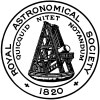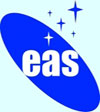Application of machine learning techniques to astronomical data analysis
Principal contact : S. Raychaudhury (somak@star.sr.bham.ac.uk )
Organisers: O. Lahav (UCL, UK), S. Raychaudhury (Birmingham, UK)
The ever-increasing availability of large astronomical datasets, including images and spectra and derived quantities, necessitates the development of techniques which will allow fast, automated classification and extraction of key physical properties for very large datasets, and enable the visualisation of the structure of highly multi-dimensional data, to extract, classify and study patterns and substructures in a flexible way. In addition, many astronomical datasets have properties, namely the handling of errors, and of censored and missing data, that are not adequately dealt with by off-the-shelf data mining tools.
This session is to explore emerging machine learning techniques for multivariate data analysis and visualization, and will be of interest to a wide audience. We hope to conclude with a general discussion of the compilation of well-understood standard datasets for the comparison of algorithm performance.
Scientific Programme
| Tuesday 21st April | ||
| 11:00 | Recent Developments in Bayesian Methods in Cosmology | Roberto Trotta |
| 11:15 | Classification and Astrophysical Parameter Inference for Large Surveys | Coryn Bailer-Jones |
| 11:30 | Automated classification of variable stars from the CoRoT exoplanet database | Conny Aerts |
| 11:42 | A Comparison of Photometric Redshift Methods on a Sample of Luminous Red Galaxies | Manda Banerji |
| 11:54 | Galaxy shapes in Weak Lensing Surveys (GREAT08) | Lisa Voigt |
| 12:06 | Poster Session | Houri Ziaeepour Ben Rogers Roman Baluev |










